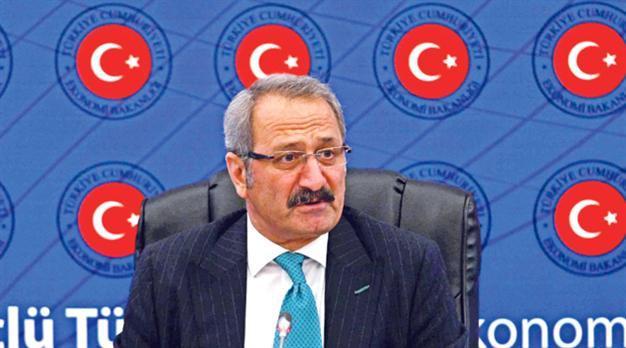Company buildings may be tax-deductible
ANKARA - Anatolia News Agency

Companies, which apply for incentives, will be able to include their buildings into their applications, Economy Minister Zafer Çağlayan says at a press meeting. Hürriyet photo
Company plants and buildings will be included in
Turkey’s new incentive system in the new term, which has supported some 3.93 billion liras worth projects until now, Economy Minister Zafer Çağlayan said yesterday in a press meeting on the scheme.
He said the business world had voiced a strong demand for the passive plants and buildings to fall within the scope of the incentive system.
“Only the expenditure regarding business activities in a premise falls within the scope of incentives to this day. Now we include purchasing company buildings within the scope of the new incentive system,” he said, adding that the plot would not be subject to tax deduction.
Individuals may evaluate their existing premises and include them into the investment file to benefit from incentives, he said, adding that a partner may sell a building in his or her possession to his or her company in this regard.
This practice that will cover all regions of the country will be an impetus to bring plants or such premises that have been left unused for various reasons, into the economy, he said. The Ministry of Economy will carry out work to identify passive premises stock along with The Ministry of Finance and the Union of Chamber and Commodity Exchanges (TOBB), he said.
“Some 480 applications have been lodged with the Ministry of Economy for incentives since June 19, 2012 [when the New Incentive Resolution was enacted], with total fixed investments of 5.5 billion Turkish Liras. A total 340 projects have been examined and granted incentives with total fixed investments of 3.93 billion liras and an estimated 16,247 employed,” he said.
Manufacturing firms
In terms of the numbers of incentive certificates, 56.8 percent of them were granted to investments in manufacturing sector, according to data revealed by Çağlayan. Planned investments in the service sectors took 27.4 percent of the certificates, followed by 9.1 percent in mining, 3.8 percent in agriculture, and 2.9 percent in energy sectors.
Textile and ready-wear investments took the highest number of certificates followed by food and beverages, mining, tourism, rubber and plastics, storage, infrastructure, education, and machinery manufacturing, according to Çağlayan.
Investors are working on the details of the incentive scheme, a process that will continue for a while, he added. “I’d like to state that the [number of] applications will increase further toward the fourth quarter of the year,” he said.
taxes,
